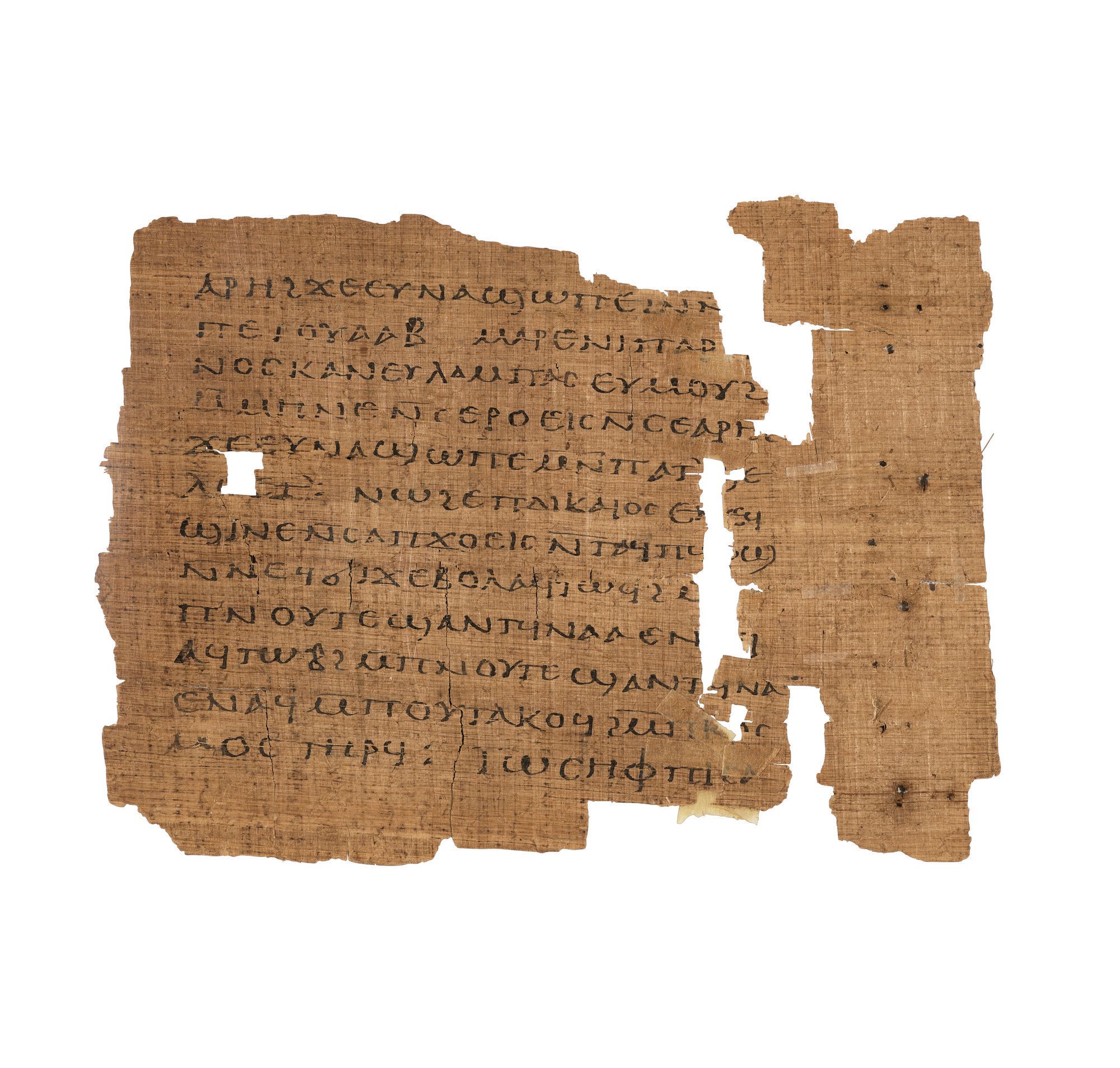One of world's earliest known books expected to fetch more than $2.6m at auction
One of the earliest books in existence is expected to fetch upwards of $2.6m when it goes up for auction later this year.
The Crosby-Schøyen Codex, which was written in Coptic on papyrus in Egypt, is the earliest Christian liturgical book, according to the international auction house Christie's, which will be holding the sale in London on June 11.
A single scribe is said to have written the codex, which is made up of 52 leaves - or 104 pages - over a period of 40 years at a monastery in upper Egypt.
Carbon dating suggests the book dates back to sometime between the middle of the 3rd and 4th centuries. One of the earliest witnesses to the spread of Christianity, the codex features the first epistle of Peter and the Book of Jonah.
The pages are preserved behind plexiglass, kept in two lockable wooden boxes. Christie's has estimated its sale price at between $2.6m and $3.8m.
The codex is part of the Bodmer Papyri, which were discovered in the 1950s and comprise biblical texts, Christian writings and pagan literary texts.
It was eventually acquired by the University of Mississippi where it remained until 1981. It exchanged hands a couple of times in the 1980s before being purchased by Norwegian manuscript collector Martin Schøyen in 1988. As such, the codex is the oldest known book in private hands.
Eugenio Donadoni, senior specialist for books and manuscripts at Christie's in London, told CNN in an email that it will be of "wide appeal to institutions and privates alike."

"The Crosby-Schøyen is one of the earliest witnesses to a development in cultural and textual transmission and in the history of the book that would not be rivalled in significance until Gutenberg's printing press and the 20th-century revolution in electronic publishing and communication," he said.
"It is one of the earliest examples of the book in the form that we still know it today, and as the earliest in private hands, it's unlikely anything like this will ever come to auction again."
Donadoni added: "It is of monumental importance as a witness to the earliest spread of Christianity around the Mediterranean: The earliest monks in Upper Egypt in the earliest Christian monastery were using this very book to celebrate the earliest Easter celebrations, only a few hundred years after Christ and only a hundred or so years after the last Gospel was written.
"It contains the two earliest complete texts of two books of the Bible, 1 Peter and Jonah, both used in those Easter services."
The well preserved condition of the codex is largely down to the "conducive climactic conditions" in Egypt where the codex was discovered, according to the catalogue details released by Christie's.
The codex has been listed as part of a wider collection of "manuscript masterpieces" from The Schøyen Collection, which Christie's describes as "one of the largest and most comprehensive collections of manuscripts ever assembled."
Its website states: "The importance of the materials in this collection goes far beyond the scope of a private collection, or even a national public collection. The sale spans 1,300 years of cultural history and includes world heritage manuscripts such as the Crosby-Schoyen Codex, the Holkham Hebrew Bible and the Geraardsbergen Bible, but also Greek literature, humanist masterpieces, a book owned by a Saint, early English law, a historically important Scottish chronicle, and the earliest known book-binding."
The codex is currently on view at Christie's New York where it will remain until April 9.
Sent from my Linux system.
Hello, after reading this amazing post i am too glad to share my experience here with mates.
ReplyDeleteIt’s very informative and you are obviously very knowledgeable in this area.
ReplyDeleteWonderful web site. Plenty of useful info here.
ReplyDeleteThis is my first visit to your blog!
ReplyDeletein the same niche. Your blog provided us beneficial information to work on.
ReplyDeleteYour method of describingg all in this paragraph is genuinely fastidious, all
ReplyDelete